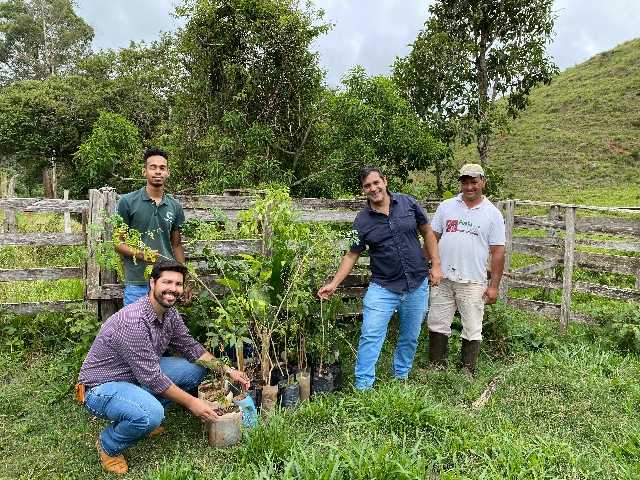HAMBURG, Germany – The Hamburg coffee roaster Tchibo has the goal of only offering responsibly purchased coffee starting from 2027. Since coffee farmers worldwide are suffering from both the consequences of climate change and low incomes, a rethink in the coffee trade is urgently needed. Tchibo, roasted coffee market leader in Germany, Austria, the Czech Republic and Hungary, is rising to the challenge.
Regardless of whether Feine Milde, Eduscho, Qbo, Cafissimo, Barista or rarities – from 2027 all Tchibo coffees should come from responsible purchasing.
Coffee price and climate change
The effects of climate change on coffee cultivation are worrying. By 2050, the area under coffee cultivation could be halved*, as dryness and drought lead to significant crop failures. In addition, 70 percent of the 12.5 million coffee farmers worldwide manage small farms of less than one hectare. They suffer from low incomes, which can lead to problems such as child labor and illegal deforestation.
Pablo von Wanderfels, Director of Corporate Responsibility: “Sustainability in coffee is not a fixed state, but a path. The most pressing questions are: how can coffee farmers advance economically and at the same time better positioning themselves against climate change and other crises?”
20 percent of all Tchibo coffees are certified
The need for action is therefore enormous. Currently, 20 percent of all Tchibo coffees are certified by Fairtrade, Rainforest Alliance or the organic seal or come from Tchibo Joint Forces!(R) projects .
These projects have been supporting coffee farmers for over 20 years in developing more sustainable farming methods and thus producing higher quality coffee. Tchibo has achieved a lot with this. However, certifications alone are not the solution. Farmers need more support on their way to more sustainable farming.
Often the higher prices that they can achieve for certified products do not cover the production costs. In addition, there are rarely purchase guarantees for certified coffees on the market.
Sustainable coffee program beyond the premium niche
Around 75,000 small farmers (including from Guatemala, Honduras, Vietnam and Brazil) produce all of Tchibo coffee. 80 percent of the coffee produced is not certified. But it is precisely these coffees that should be grown as environmentally friendly and socially responsible as possible so that the farmers’ livelihoods are significantly improved.
Pablo von Wanderfels explains: “In our view, the coffee industry needs to change significantly so that our favorite drink has a future. That’s why Tchibo is launching its new coffee sustainability program, because as a company we ourselves have to take responsibility more consistently. For each of our coffees we need to know where it comes from and under what conditions it is produced.”
Tchibo will help farmers build an economically stable foundation to make them more resilient to price fluctuations. This includes measures such as agroforestry, reforestation, cultivation of fruit trees and other crops, and the sowing of new varieties of coffee that are better protected against extreme weather. The implementation takes place in close cooperation with trainers and agronomists from the exporters.
The specific measures are coordinated regionally in order to achieve the greatest possible impact. In Brazil, for example, the focus is on protecting biodiversity, climate and water, while in Honduras the focus is on fighting poverty. This means that each country gets its own tailor-made program.










